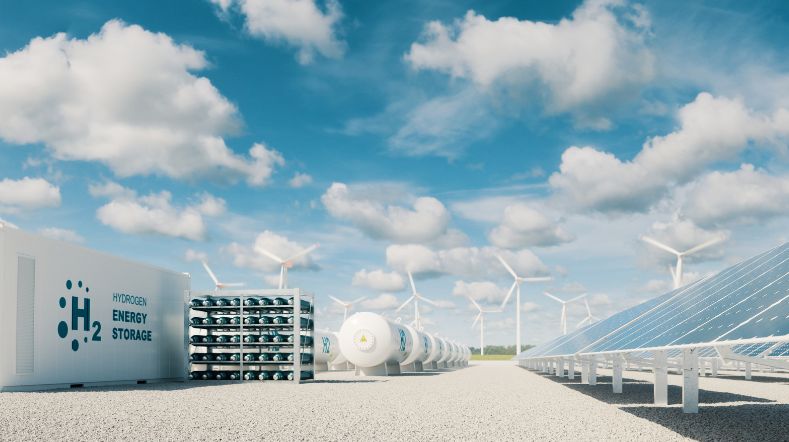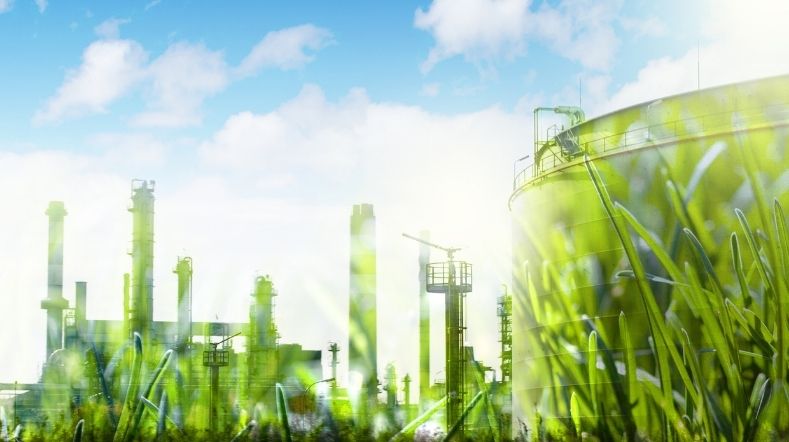
IPOSH: groundbreaking cost-effective offshore hydrogen production
In cooperation with
H2sea and Bosch Thin Metal Technologies
Stakeholders in the energy sector face challenges such as high costs and complex planning for offshore hydrogen production. In response, TNO is supporting H2sea and Bosch Thin Metal Technologies in the IPOSH project (Innovative Process Design for Offshore Hydrogen). This pioneering initiative aims to optimise the design of offshore hydrogen production systems.
The project targets a reduction in the Levelised Cost of Hydrogen (LCOH) by 10-20%. Supported by the Dutch TKI Offshore Energy Programme, the IPOSH project promises to set new standards in the industry.
A new approach to electrolyser design
Traditionally, electrolyser stacks are designed first, with the balance of stack (BoS) and balance of plant (BoP) components selected afterwards to accommodate the stacks. The IPOSH project, however, is one of the first in the world to consider all components equally important from the outset. This integrated approach ensures cost savings through simultaneous optimisation rather than retrofitting elements to pre-designed stacks. By designing the overall system, the project aims to achieve higher efficiency and cost-effectiveness.
Lifecycle-based methodology
The IPOSH project will adopt a lifecycle-based methodology, evaluating critical aspects such as plant design, transport, installation, maintenance, operation, and decommissioning. Through model-based analysis, the project will assess stack replacement rates under different operational scenarios and module sizes to enhance efficiency and longevity.
Holistic optimisation for offshore electrolysis
A key focus of the project is to establish general requirements for offshore electrolysis, addressing factors such as system footprint, maintenance needs, and environmental impact. By implementing a system engineering approach, the partners will ensure that the electrolyser system is holistically optimised rather than constrained by existing design limitations. This will enable the identification of the most cost-effective and scalable configurations for offshore hydrogen production.
TNO's role in the IPOSH project
TNO leverages its extensive expertise in energy transition and sustainable technologies to support the integrated development approach of the IPOSH project. TNO’s contribution includes:
-
Lifecycle-based methodology
TNO develops and applies a lifecycle-based methodology together with H2sea and Bosch, to evaluate critical aspects of offshore hydrogen systems, such as design, transport, installation, maintenance, operation, and decommissioning. This contributes to a more robust and long-term cost-effective system setup.
-
Contribution in model-based analysis
In collaboration with Bosch, TNO contributes to the model-based analysis of stack replacement rates under varying operational conditions and module sizes. These insights help assess system performance and inform design choices.
- TNO provides input to H2sea’s system engineering design process, for the assessment of system footprint, maintenance needs, and environmental impact. This input helps ensure the overall design is well-suited for offshore application and long-term performance.
Support in system engineering approach
Collaborative expertise for a sustainable future
By leveraging the combined expertise of H2sea, TNO, and Bosch Thin Metal Technologies, the findings of the IPOSH project will provide valuable guidance for future developments, strengthening the role of offshore hydrogen in achieving a sustainable, low-carbon energy system.
Interested in collaborating?
Interested in the future of sustainable energy solutions like offshore hydrogen production? Contact us to discover how you can participate in our projects and initiatives. Together, we can turn insights into concrete actions.
Get inspired
TAKE-OFF project: From CO2 and hydrogen to sustainable aviation fuels


Netherlands–India: Collaboration for green hydrogen


Temporary Special Economic Zone around Rotterdam can prevent climate delays and GDP losses


Sunlight-driven technology for sustainable chemistry and solar fuels


The energy system of the future



